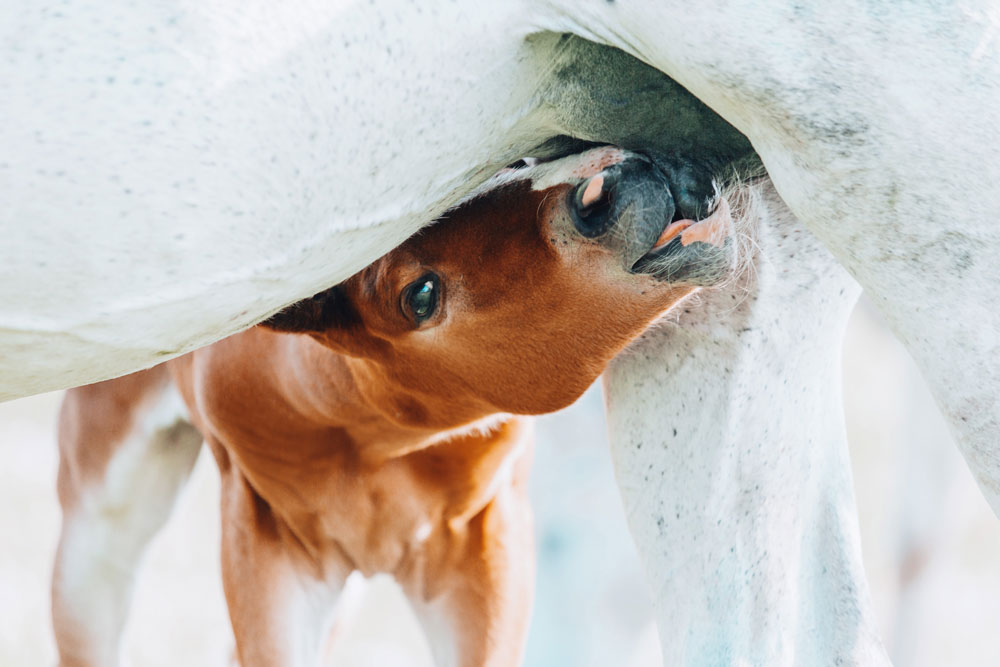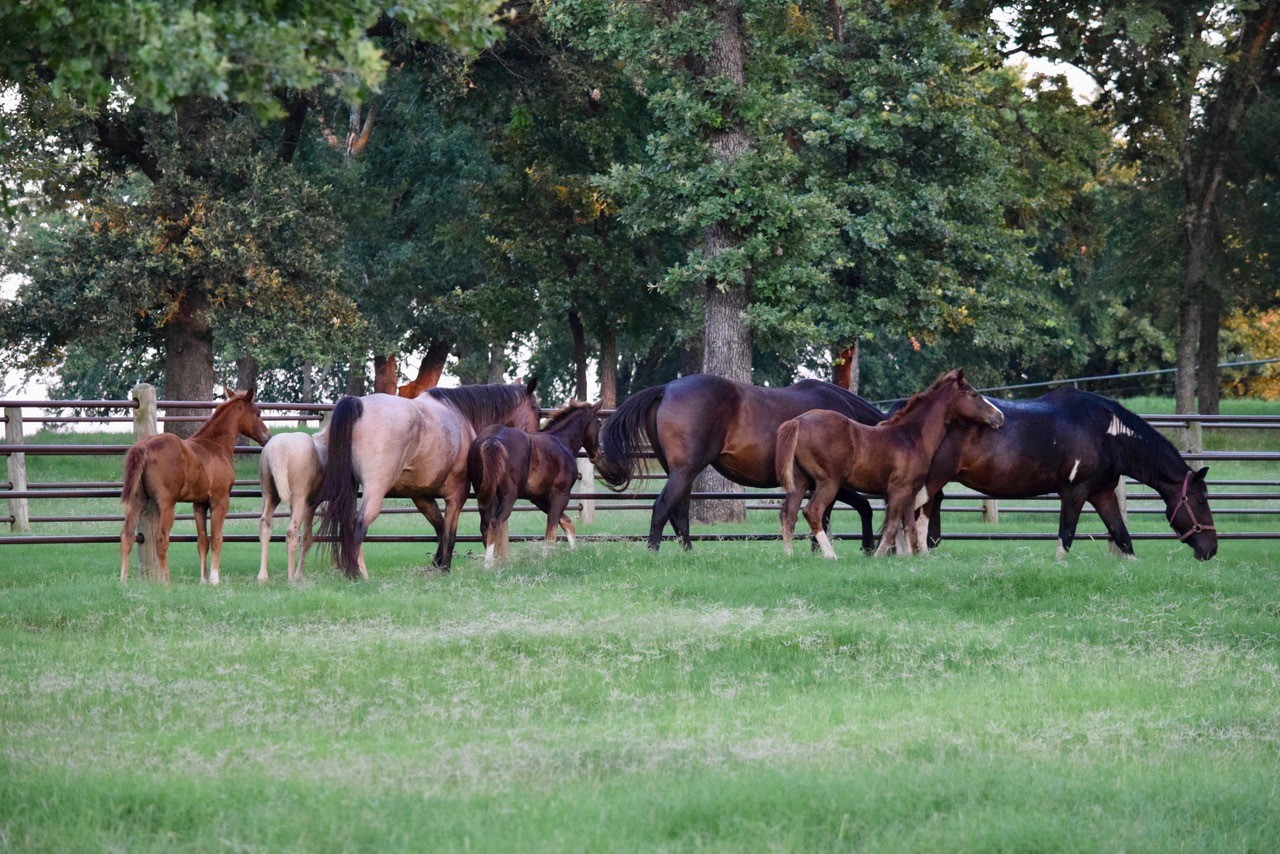One of our favorite tips for improving your feed program is to mix chaff with your horse’s grain. This simple step can help support your horse’s digestive health. But the suggestion always leads to quizzical looks and two questions:
- What is chaff?
- What does it do?
Chaff in equine feed terminology is really just a fancy word for something very simple: chopped hay.
Mixing chaff with your concentrates (sweet feed, pelleted feed, and other grains) has one main purpose: it forces your horse to chew more thoroughly.
The number of chewing movements for roughage (hay, grass, etc.) is much greater than with concentrates. Horses make 800-1200 chewing movements per 1 kilogram (approx. 2.2 pounds) of concentrates, whereas 1 kilogram of regular hay requires 3000-3500 chewing movements. Harris, et al., published a study in 2005 which “rediscovers” what old-time horsemen knew: the addition of 35% chaff to concentrated feed slowed the rate of consumption and doubled the eating time.
Increasing the time your horse spends chewing concentrates has two resulting benefits for overall digestive health: 1) it increases saliva production, and 2) it helps slow the intake of grain. Let’s look at each of these…
Feeding Chaff Increases Saliva from Chewing – Good for the Stomach
The equine stomach is constantly producing acids that work to break down food, whether the horse is eating or not. Equine saliva is alkaline, and this helps to offset the continual production of acid in the stomach. The average horse naturally produces 3-5 gallons of saliva every day, so long as it has something to chew on.
When a horse’s stomach is empty because there are a few hours between feed times, there’s no saliva or forage to help buffer the acids. And this acid can compromise the protective mucosal lining of the stomach, leaving the horse susceptible to gastric ulcers.
Feeding chaff requires the horse to chew grain very thoroughly. The increase in chewing time produces more saliva to help buffer the acids.
Feeding Chaff Helps to Slow Grain Intake – Good for the Hindgut
One common problem with concentrates is that horses tend to eat them too fast. Usually, it’s because they are fed a few meals a day and are just plain hungry. As a result, grains rich in simple carbohydrates (sugars and starches) are ingested into the system very quickly – moving through the stomach and small intestine in just a few hours before reaching the hindgut. These undigested starches and sugars that reach the hindgut throw off the natural balance of good bacteria that is working to ferment fiber. This can lead to serious problems, from hindgut acidosis to ulcers to colic.
By adding chaff in with concentrates, and wetting it down to keep it well mixed, you force your horse to chew more thoroughly and slowly. This can mean your horse takes 45 minutes over his grain meal rather than just 10.
The benefit of increasing chewing time is that grain enters the equine digestive tract more slowly and in smaller amounts – allowing the simple carbohydrates to be fully absorbed in the small intestine.
In short, feeding chaff with your horse’s concentrated feeds is all about increasing chewing time. Along with free choice hay or turnout on quality pasture, this is a great way to help your horse avoid serious digestive issues like gastric and colonic ulcers, hindgut acidosis, and colic.



